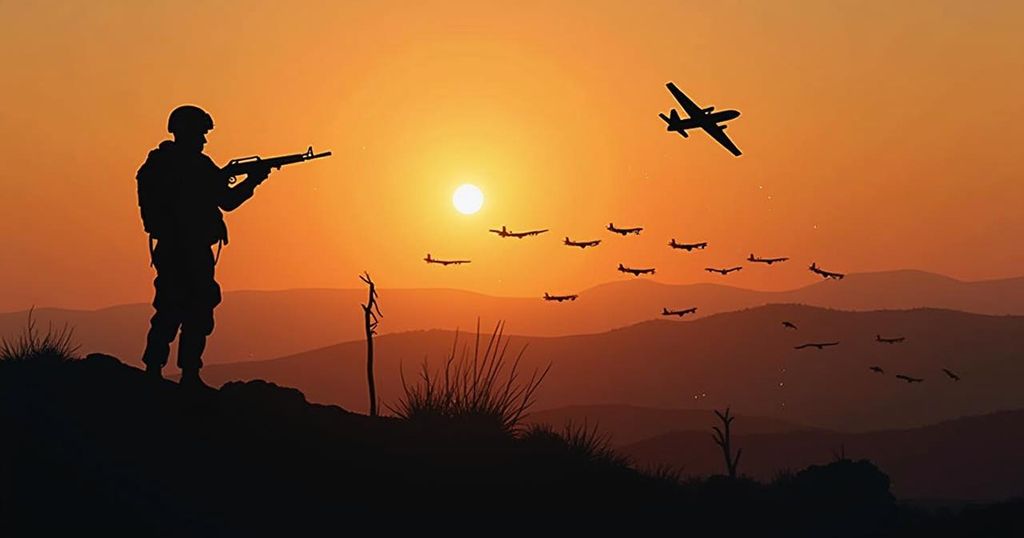Israel Strikes Hezbollah Targets in Response to Nasrallah’s Death as Iran Promises Retaliation

The Israeli military has launched multiple strikes against Hezbollah targets in Lebanon, while Iran pledges to avenge the killing of the group’s leader, Hassan Nasrallah. U.S. President Joe Biden emphasizes the need for a ceasefire amid escalating violence, as reported civilian casualties rise in the aftermath of these military actions.
The Israeli military intensified its operations against Hezbollah targets in Lebanon, claiming responsibility for strikes on multiple sites utilized by the militant group, specifically targeting launchers aimed towards Israeli territory. This military action was executed shortly after the Iran-backed organization confirmed the death of its historical leader, Hassan Nasrallah. His death is perceived as a significant catalyst for further hostilities in the region. Iran’s Supreme Leader, Ayatollah Ali Khamenei, issued a stern condemnation of Nasrallah’s killing, proclaiming that it would “not go unavenged” and subsequently declared a five-day period of public mourning in honor of the slain leader. In the context of the current humanitarian crisis, U.S. President Joe Biden characterized Nasrallah’s demise as a “measure of justice” addressing the prolonged reign of violence associated with the group, while reinforcing his call for a ceasefire between Israel and Hezbollah. Key developments from the preceding day highlighted that the Israeli Defense Forces had reported the successful elimination of Nasrallah during an airstrike carried out in Beirut. Following this announcement, Hezbollah confirmed the fatality, asserting a commitment to persist in its campaign against Israel. Israeli Prime Minister Binyamin Netanyahu forecasted that the impact of Nasrallah’s death would significantly alter the regional power dynamics for an extended period. Additionally, the assault resulted in the deaths of other prominent Hezbollah figures, such as Ali Karki, who was in command of the group’s southern front. Reports from Lebanon’s health ministry identified at least 33 casualties and approximately 200 injuries resulting from ongoing Israeli strikes.
The ongoing conflict between Israel and Hezbollah has escalated sharply following the announcement of Hassan Nasrallah’s death, as well as Israel’s sustained military efforts in Lebanon. Hassan Nasrallah had been a pivotal figure in Hezbollah, a group with strong ties to Iran that has historically engaged in conflict with Israel. The region has seen various military confrontations, and this latest development can be viewed as a critical turning point amidst a backdrop of violence and instability. Iran’s threats of retaliation and public mourning reinforce the complexities of the political and military landscape inherent to this situation. Given this context, the actions and reactions of both local and international leaders are central to understanding the unfolding crisis.
In summary, the killing of Hezbollah leader Hassan Nasrallah marks a significant escalation in the ongoing conflict between Israel and the militant group, prompting retaliatory threats from Iran and an intensification of Israeli military operations in Lebanon. With civilian casualties rising amid these exchanges, international leaders are voicing concerns while also commenting on the justifications for the action taken against Nasrallah. The shift in power dynamics and the potential for increased violence in the region remain focal points of international attention.
Original Source: www.france24.com








